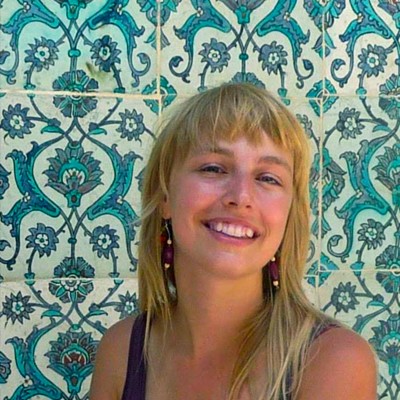Hélène Sechehaye
Biography
Hélène Sechehaye (Braine l'Alleud, 1990) has a PhDin Music and Musicology (Université Libre de Bruxelles / Université Jean Monnet, Saint-Etienne) and is a qualified lecturer (France). During her studies, Hélène developed an interest in the traditional music scene in Brussels and completed an internship at the Centre de Recherche en Ethnomusicologie (Nanterre). After graduating, she was hired in 2014 by the association Muziekpublique, a center for the promotion and dissemination of traditional, folk and world music, where she coordinates the academy of music and the label. There she participates in the production of the projects Voxtra, Vardan Hovanissian & Emre Gültekin and Refugees for Refugees.
In 2016, Hélène was awarded a Mini-ARC scholarship (ULB) for a doctoral thesis in musicology. Her research focuses on the musical practices of the Gnawa, a brotherhood of Moroccan origin that has been living in Brussels for over twenty years. By focusing on this orally transmitted repertoire, Hélène is interested in the role that music plays in the transnational context of the Gnawa diaspora. In addition to her research, publications (Arts, Brussels Studies, Cahiers d'Ethnomusicologie), communications at international conferences, Hélène is involved in the organization of study days, mediation events and coordinates the recording of an album (Jola - Hidden Gnawa Music in Brussels, Muziekpublique, 2020) which has been registered in the Flemish register of best practices for the safeguarding of intangible cultural heritage. She continues her research on the Gnawa diaspora thanks to a grant for a 3-month research stay at the Academia Belgica (Rome).
Since 2019, Hélène is a founding member and president of ICTM Belgium, the Belgian national committee of the International Council for Traditional Music which works for the recognition and development of ethnomusicology in Belgium. In 2020, Hélène joins the team of the Royal Conservatory of Brussels (Rhythms and Rhythmics) as Professor of Ethnomusicology for the courses of Commented Audition (B1, B2 and B3) and Rhythmic Theories and Notations (B2). In 2021-2022, she replaces Marie-Alexis Colin at the Université Libre de Bruxelles for the course of Cultural History of Music (18-20th century).
